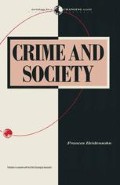Abstract
Hindsight is at once a useful tool and a dangerous weapon. It is easy to look back on an era, knowing what has since happened, and assert confidently that it was in those years that the origins of the welfare state or of the Second World War can be located. It is easy because we have after-knowledge; yet we may be imposing a pattern on unplanned and potentially inconsequential events, which at best distorts and at worst does them real injustice. Danger comes when hindsight is used as a basis for foresight, for predicting future trends on the premises of past ones. In the mid-1970s, for instance, many commentators averred that Britain had become an ungovernable country and faced possible revolution, authoritarian dictatorship or, at the very least, continual constitutional crises. Yet ten years later Britain had a Conservative government in power with a large majority and had successfully fought a war to preserve traditional British interests. The diagnosis and the forecasts had been either over-optimistic or over-pessimistic, depending on your point of view. They were, however, certainly wrong.
Preview
Unable to display preview. Download preview PDF.
Copyright information
© 1989 Frances Heidensohn
About this chapter
Cite this chapter
Heidensohn, F. (1989). Changing Perspectives on Crime: from Interactionism to Critical Criminology. In: Crime and Society. Sociology for a Changing World. Palgrave, London. https://doi.org/10.1007/978-1-349-19763-7_4
Download citation
DOI: https://doi.org/10.1007/978-1-349-19763-7_4
Publisher Name: Palgrave, London
Print ISBN: 978-0-333-43528-1
Online ISBN: 978-1-349-19763-7
eBook Packages: Palgrave Social & Cultural Studies CollectionSocial Sciences (R0)

